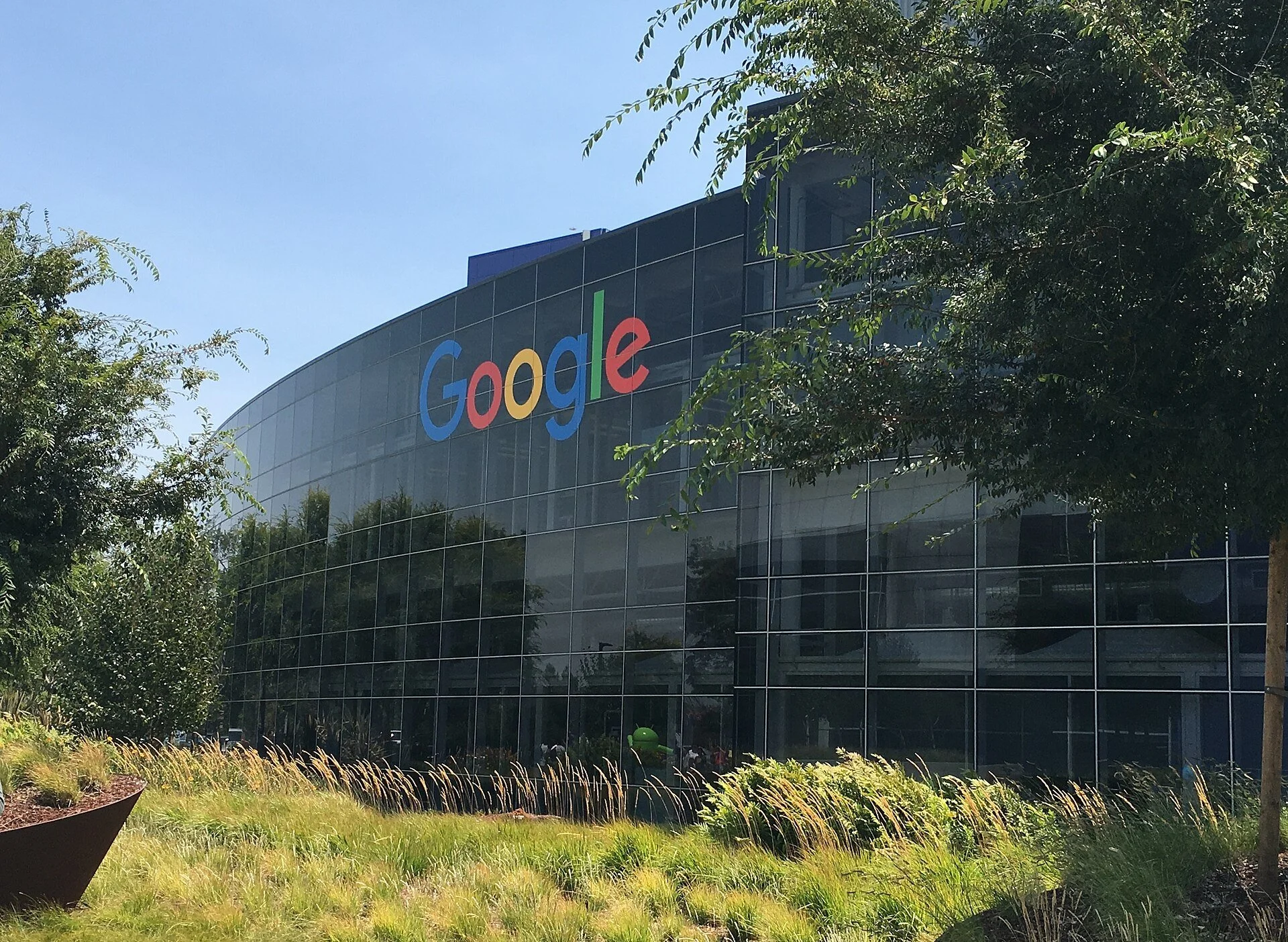Llewellyn King: What might happen if Google is broken up?
Google headquarters, in Mountain View, Calif.
WEST WARWICK, R.I.
Alphabet Inc.’s Google has few peers in the world of success. Founded on Sept. 4, 1998, it has a market capitalization of $1.98 trillion today.
It is global, envied, admired, and relied upon as the premier search engine. It is also hated. According to Google (yes, I googled it), it has 92 percent of the search business. Its name has entered English as a noun (google) and a verb (to google).
It has also swallowed so much of world’s advertising that it has been one of the chief instruments in the humbling and partial destruction of advertising-supported media, from local papers to the great names of publishing and television; all of which are suffering and many of which have failed, especially local radio and newspapers.
Google was the brainchild of two Stanford graduate students, Larry Page and Sergey Brin. In the course of its short history, it has changed the world.
When it arrived, it began to sweep away existing search engines quite simply because it was better, more flexible, amazingly easy to use, and it could produce an answer from a few words of inquiry.
There were seven major search engines fighting for market share back then: Yahoo, Alta Vista, Excite, Lycos, WebCrawler, Ask Jeeves and Netscape. A dozen others were in the market.
Since its initial success, Google, like Amazon, its giant tech compatriot, has grown beyond all imagination.
Google has continued its expansion by relentlessly buying other tech companies. According to its own search engine, Google has bought 256 smaller high-tech companies.
The question is: Is this a good thing? Is Google’s strategy to find talent and great, new businesses or to squelch potential rivals?
My guess is some of each. It has acquired a lot of talent through acquisition, but a lot of promising companies and their nascent products and services may never reach their potential under Google. They will be lost in the corporate weeds.
In the course of its acquisition binge, Google has changed the nature of tech startups. When Google itself launched, it was a time when startup companies made people rich when they went public, once they proved their mettle in the market.
Now, there is a new financing dynamic for tech startups: Venture capitalists ask if Google will buy the startup. The public doesn’t get a chance for a killing. Innovators have become farm teams for the biggies.
Europe has been seething about Google for a long time, and there are ongoing moves to break up Google there. Here, things were quiescent until the Department of Justice and a bipartisan group of attorneys general brought suit against the company for monopolizing the advertising market. If the U.S. efforts to bring Microsoft to heal is any guide, the case will drag on for years and finally die.
History doesn’t offer much guidance as to what would happen if Google were to be broken up; the best example and biggest since the Standard Oil breakup in 1911 is AT&T in 1992.
In both cases, the constituent parts grew faster than the parent. The AT&T breakup fostered the Baby Bells — some, like Verizon, have grown enormously. Standard Oil was the same: The parts were bigger than the sum had been.
When companies have merged with the government’s approval, the results have seldom been the corporate nirvana prophesied by those urging the merger, usually bankers and lawyers.
Case in point: the 1997 merger of McDonnell Douglas and Boeing. Overnight the nation went from having two large airframe manufacturers to having just one, Boeing. The price of that is now in the headlines as Boeing, without domestic competition, has fallen into the slothful ways of a monopoly.
Antitrust action against Google has few lessons to be learned from the past. Computer-related technology is just too dynamic; it moves too fast for the past to illustrate the future. That would have been true at any time in the past 20 years (the years of Google’s ascent), but it is more so now with the arrival of artificial intelligence.
If the Justice Department succeeds, and Google is broken up after many years of litigation and possible legislation, it may be unrecognizable as the Google of today.
It is reasonable to speculate that Google at the time of a breakup may be many times its current size. Artificial intelligence is expected to bring a new surge of growth to the big tech companies, which may change search engines altogether.
Am I assuming that the mighty ship Google is too big to sink? It hasn’t been a leader to date in AI and is reportedly playing catch up.
Llewellyn King is executive producer and host of White House Chronicle, on PBS. His email is llewellynking1@gmail.com, and he’s based in Rhode Island.
